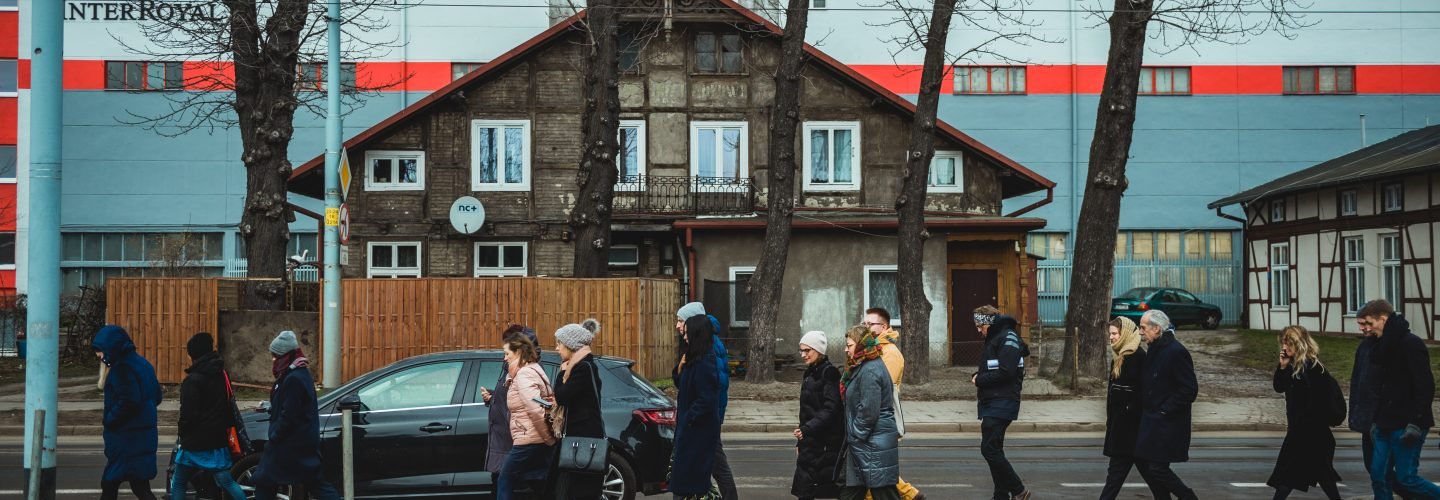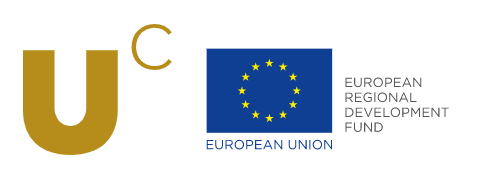
UrbCulturalPlanning
Making our neighbourhood better for living
The beginning of 2022 marks the end of a three-year-long project dedicated to Urban Cultural Planning (UCP). What started just as a way of thinking half a century ago, has changed many paradigms and methods in city planning, city governing and work with communities today.
Launched as a cross border partnership of 14 Project Partners and 36 Associated Organizations in 9 countries, UCP reached its goal to advance the capacity of public authorities in the Baltic Sea Region (BSR) and local NGOs and associations to collaborate on citizen driven cultural planning.
During the project, with Danish Cultural Institute as the lead partner, not only the methods of cultural planning in a toolkit were collected, mentoring on the use of it was also provided. Despite the intrusion of Covid into our daily lives, 11 Urban Labs were also organized to adapt cultural planning methods for wider use in the BSR, including topics of cultural mapping, cultural visioning, stimulating local social innovation etc. 10 BSR Demonstrator projects in the neighbourhoods of cities and towns were addressing challenges such as shrinking cities, social inclusion, gentrification, and lack of community life.
Uncountable artist residencies were coordinated to work directly with communities and places and have a fresh view on the potentials of the neighbourhoods. Gaming activities, mostly Minecraft, were used to involve children and young people to empower their creativity in finding the best solutions for local challenges as well as finding new opportunities.
3 conferences were set up to bring together cultural planning practitioners with policy makers and stakeholders, regional and city planners, culture departments, NGOs, businesses. and media.
UrbCulturalPlanning was funded by the Interreg Baltic Sea Region (BSR) program. It was a BSR flagship project running from January 2019 to December 2021 with the total funding of 2.528.385 euros.
Project partners
- Danish Cultural Institute (DK)
- Heinrich Böll Stiftung Schleswig Holstein (DE)
- Copenhagen International Theater (DK)
- City Culture Institute (PL)
- Project company Kiel-Gaarden GmbH (DE)
- Guldborgsund Municipality (DK)
- Pomorskie Vovoideship (PL)
- City of Pori (FI)
- City of Riga (LV)
- Vilnius Gediminas Technical University (LT)
- Inland Norway University of Applied Sciences (NO)
- University of Skövde (SE)
- Baltic Sea Cultural Centre (PL)
- NCCA Kaliningrad (RUS)
Achievements during the program
- A website for the project was created to gather relevant information of cultural planning. During the 3 years of work, it collected lots of useful know-how, and after the program ended, it turned into a hub of knowledge to maintain networking, usage, and understanding of cultural planning during the next 5 years.
- A special LIBRARY section was created to collect the best there is of visual material, artist and urban lab diaries, video recordings, presentations, mapping results etc. during the UCP project. You can visit the Library of UCP anytime you want, and we hope it will inspire you!
- 12 artist residencies took place at partner countries (cities) all over the Baltic Sea Region with several dozens of artists participating. They worked directly with neighbourhoods and their communities specially chosen for the project, to foster creativity and experimentation, including mapping the grounds, participation, and visioning possible futures for the city. It resulted with many artist diaries and reports. Some of the best are published in the LIBRARY section of the UCP website.
- 10 demonstrator initiatives began to work with the same neighbourhoods and communities to test Cultural planning methods. The demonstrators provided transnational value as a testing ground to deliver best practice at local level and transferable knowledge (models, methods, tools, processes) to be used by other cities. All demonstrators were selected to have a clear BSR strategic relevance.
- 11 urban labs took place from mid-2019. Happening in Gdansk, Copenhagen, Guldborgsund, Kiel, Riga, Vilnius, Visaginas, Pori, Kaliningrad for at least once. The aim of the labs was to bring together various levels of citizenry, artists, politicians, developers, residents, organisations. and policy makers, to mix together ideas, inspire each other, and widen horizons in order to find more solutions to better cities and understanding between each other. Several diaries from labs are available at the website’s LIBRARY section.
- Starting from the first year, three conferences took place in Kiel (2019), Gdansk (2020), and Riga (2021). With Kiel being the only one off the screen and Gdansk the only one completely online (Riga was a hybrid event), the conferences were the main milestones, marking the progress of the program, development of cultural planning, addressing regional, continental and global issues, and designing possible futures for cultural planning. Video recordings from the last two conferences are available at the website’s LIBRARY section.
- During the program, a special urbantoolkit was created. It contains useful instruments, methods, case studies and models which help managing cultural planning processes and projects. On the website you can find best practices and case studies form Baltic Sea Region cities, tools and methods, typology of projects, situations, cities and neighbourhoods, DIY guide to projects and Q&A about cultural planning.
- A special place in the program was reserved for Minecraft and gaming activities. Taking place in Gdansk and Riga and being researched at the University of Skövde, gaming processes were intended to incorporate the youth of BSR into the process of a dialogue about shaping the common urban space and sustaining local communities. Multiple workshops, research activities and Minecraft projects were facilitated, with The Game of Gdansk as the most complex. Also, Minecraft replicas of Gdansk and Riga were also created by kids during the project.
- A visual document-guidebook called Policy Roadmap was compiled and published. The policy roadmap has been prepared to enable citizen-driven solutions to answer the needs of the community. The structure of our roadmap is divided into groups of recommendations corresponding to phases of cultural planning. It is shaped as a map, leading the reader through the subsequent steps of cultural planning.
- DCI hosted and co-organised a special seminar of cultural planning for the potential European Capital of Cultures.
- A demonstrator project documentation package is created as a set of materials guiding through 10 case studies of the cultural planning process the way it was carried out within the UrbCulturalPlanning project. It consists of 10 baseline study booklets describing each case location (neighbourhood) as before the process, ten process booklets, which depict the process in detail, and one post-process booklet, which consists of reflective interviews with the stakeholders involved at the end of the project. The written material is supported by diagrams comparing all the projects, which is aimed to be helpful for the professional readers to navigate which project case is most applicable to specific local contexts. Furthermore, each box consists not only of 10+10+1 booklets but also ten 1:10 000 maps, large scale photographs, title posters and other details, which are ready to be utilised in an exhibition set-up. Finally, the package also includes memorabilia material from each case study, such as local newspapers, posters, stickers, booklets, and other items produced in the projects’ process. All material is available online.
- By the end of the program, a special “Hubs of Cultural planning” were created among the existing partners with new to join already or in near future. The crucial idea of “Hubs of Cultural excellence” is to maintain the continuity of Cultural planning projects in the BSR, exchange ideas and knowledge, and it is more than possible that several new initiatives will emerge already in 2022 or 2023.
Read more about the program.

The photo portraits an activity within UrbCulturalPlanning supported by EU’s Interreg Baltic Sea Region program.